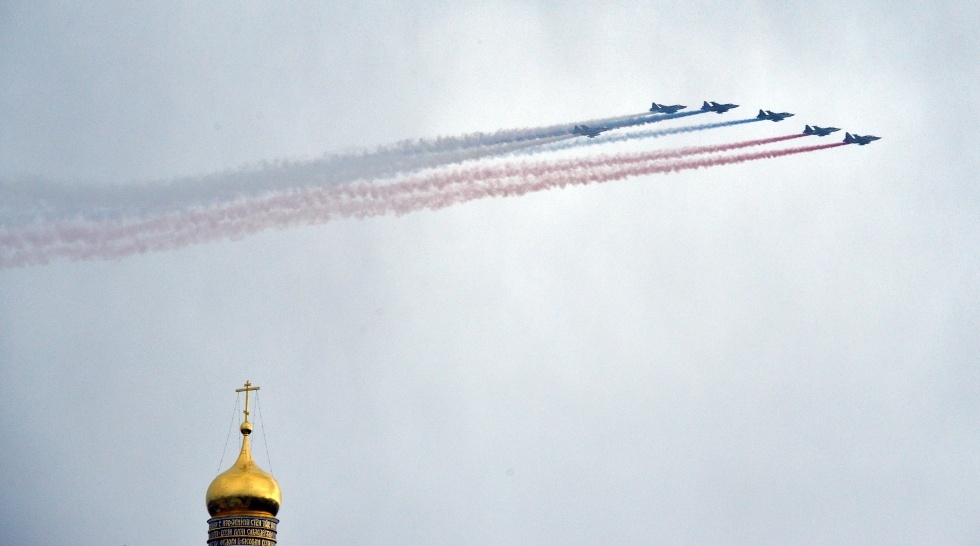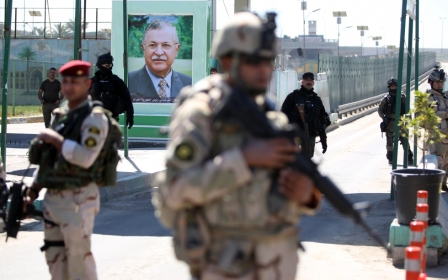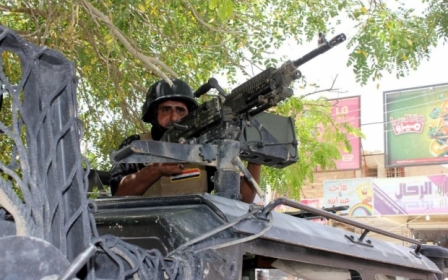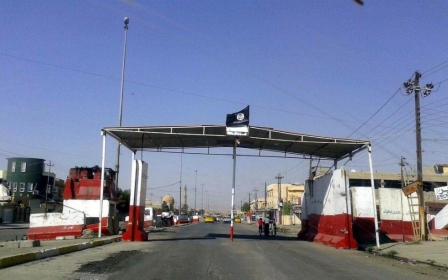Iraq receives Russian jets to fight Sunni militants

Iraq said it received the first batch of Sukhoi warplanes from Russia as it pressed a counter-attack Sunday against Sunni militants.
The newly-purchased Su-25 ground attack jets are expected to be pressed into service as soon as possible, bolstering Iraq's air power as it combats a sweeping offensive by militants.
But it remains unclear who will fly them -- Saddam Hussein's air force had Su-25s, but even if they were both trusted and willing, those pilots are unlikely to have had time in the aircraft in more than a decade.
Iraqi Prime Minister Nuri al-Maliki on Thursday announced that Baghdad was buying more than a dozen of the warplanes from Russia in a deal that could be worth up to $500 million (368 million euros).
Russian Deputy Foreign Minister Sergei Ryabkov said on Saturday in Damascus, meanwhile, that Moscow "will not remain passive to the attempts by some groups to spread terrorism in the region."
"The situation is very dangerous in Iraq and the foundations of the Iraqi state are under threat."
Ryabkov, whose country is Syrian President Bashar al-Assad's main backer, did not elaborate on what steps Russia might take.
Iraqi forces have for days been pressing a campaign to retake Saddam's hometown of Tikrit, which fell to the militants on June 11.
Thousands of soldiers, backed by tanks and bomb disposal units, have been engaged in the battle for the city -- with air strikes adding firepower to the counter-offensive.
Iraq coordinating with US advisers over 'important targets'
While Washington has begun sending military advisers to help Iraqi commanders and is flying armed drones over Baghdad, Iraqi officials have voiced frustration that multi-billion dollar deals for US-made F-16s and Apache helicopters have not been expedited.
According to Maliki's security spokesman, Iraqi forces are coordinating with US advisers over "important targets" of the air attacks.
The spokesman has said hundreds of soldiers have been killed since the offensive was launched on June 9, while the UN puts the overall death toll at over 1,000, mostly civilians.
The US has publicly pushed for political reconciliation, but it has left little doubt it feels the premier has squandered the opportunity to rebuild Iraq since American troops withdrew in late-2011.
US officials have also said a proposed $500-million plan to arm and train moderate rebels in neighbouring Syria could also help Iraq fight ISIL, which operates in both countries.
World leaders have insisted on a political settlement among Iraq's Shiite Arab, Sunni Arab and Kurdish communities.
Maliki, who has publicly focused on a military response to the crisis, has acknowledged that political measures are also necessary, but politicians have nevertheless cautioned that naming a new cabinet could still take a month or more.
International agencies have sounded the alarm over the humanitarian consequences of the fighting, with up to 1.2 million displaced in Iraq this year.
The International Organisation for Migration warned that aid could not reach tens of thousands of displaced Iraqis, and called for humanitarian corridors.
New MEE newsletter: Jerusalem Dispatch
Sign up to get the latest insights and analysis on Israel-Palestine, alongside Turkey Unpacked and other MEE newsletters
Middle East Eye delivers independent and unrivalled coverage and analysis of the Middle East, North Africa and beyond. To learn more about republishing this content and the associated fees, please fill out this form. More about MEE can be found here.




